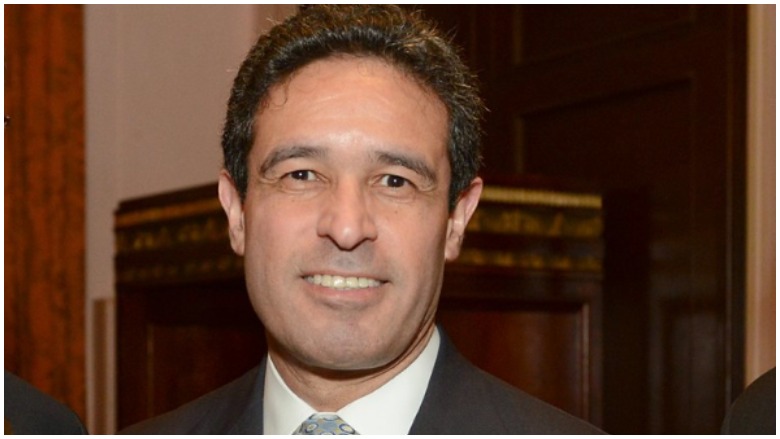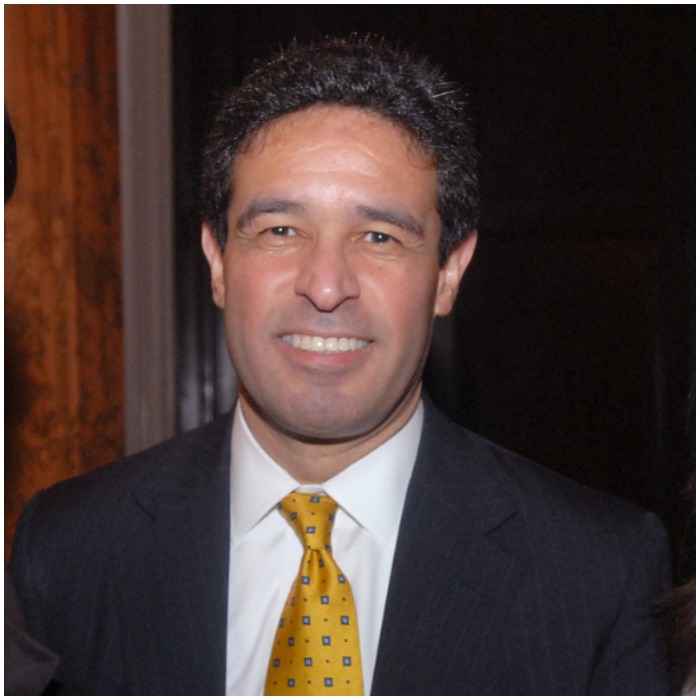
Federal Bar Council Judge Edgardo Ramos of the Southern District of New York
Judge Edgardo Ramos, who has been serving as a United States District Judge for the Southern District of New York since late 2011, has ruled that Deutsche Bank and Capitol One can turn over President Donald Trump’s financial records to Congress. He announced on May 22, 2019, that he was rejecting the president’s request to block the subpoenas.
President Trump, his three oldest children, and the Trump Organization filed a complaint against the two banks on April 29, 2019. The goal had been to prevent the two banks from complying with subpoenas from two congressional committees, the House Financial Services and Intelligence Committees. The complaint, embedded below, argued that the subpoenas had “no legitimate or lawful purpose. The subpoenas were issued to harass President Donald J. Trump, to rummage through every aspect of his personal finances, his businesses, and the private information of the President and his family, and to ferret about for any material that might be used to cause him political damage.”
But Judge Ramos disagreed with that sentiment. His decision comes just two days after Judge Amit Mehta ruled that the House Oversight Committee had the right to see the president’s tax returns.
Deutsche Bank had been Donald Trump’s primary lender for many years. His financial history with the bank has recently come under scrutiny; the New York Times reported on May 19 that bank specialists had been concerned about “suspicious” transactions controlled by Trump and Jared Kushner. You can read that report here.
Capital One, as explained by CNBC, was involved with the Trump Organization’s hotels and holds financial records of interest to the congressional committees.
Here’s what you need to know about Judge Ramos.
1. Edgardo Ramos Was Confirmed as a Federal Judge By a Unanimous Vote in the Senate

Judge Edgardo Ramos
Edgardo Ramos was nominated by President Obama to serve as a federal judge in the Southern District of New York in May of 2011.
After being approved by the Senate Judiciary Committee, Ramos’ nomination was put before the full Senate. He was unanimously confirmed in a vote of 89-0 on December 5, 2011.
Ramos began the job on December 15, 2011.
2. Ramos Worked in Private Practice For Nearly a Decade Before His Nomination to the Federal Bench
Edgardo Ramos was a partner at the Day Pitney law firm before President Obama nominated him to serve as a federal judge. According to his Senate Judiciary Committee questionnaire, Ramos was based out of the firm’s New York City office.
Ramos worked at Day Pitney from June of 2002 until December of 2011, according to his LinkedIn profile. He specialized in white-collar defense at the law firm. He wrote in the congressional questionnaire, “I represent corporations and individuals in connection with criminal and regulatory investigations conducted by federal and state agencies involving, among other substantive areas, antitrust, bank fraud, securities fraud, public corruption and government program fraud. I also conduct internal investigations for corporate clients.”
During this time period, Ramos was also appointed by New York City Mayor Michael Bloomberg to serve on the Commission to Combat Police Corruption.
3. Ramos Served as an Assistant U.S. Attorney in the Eastern District of New York During the 1990s & Served as Deputy Chief Of Narcotics
Edgardo Ramos, before he became a defense attorney in the private sector, was a federal prosecutor. He worked as an Assistant U.S. Attorney in the Eastern District of New York from 1992 through 2002.
He explained to the Senate Judiciary Committee that he prosecuted cases involving white-collar fraud, narcotics trafficking, labor racketeering, public corruption, and money laundering. Ramos added that he served as the first or second chair in about 20 felony trials and argued 25 cases before the United States Court of Appeals For the Second Circuit.
According to a Congressional Record published on December 5, 2011, Ramos was promoted to Deputy Chief of the Narcotics Section while at the Eastern District. Ramos received the promotion in June of 2000.
The record goes on to explain that the “ABA’s Standing Committee on the Federal Judiciary unanimously rated him ‘well qualified’ to serve, its highest possible rating. The nomination of Mr. Ramos has the strong support of both his home state Senators, Senator SCHUMER and Senator GILLIBRAND, and was reported by the Judiciary Committee by voice vote with no dissent on September 15.”
4. Ramos Began His Legal Career as a Litigation Associate After Graduating From Harvard Law School
Edgardo Ramos earned his legal degree from Harvard Law School in 1987. He has a bachelor’s degree in political science and government from Yale.
His first job in the legal sector was as an associate at Simpson Thacher & Bartlett, a firm headquartered in New York City. Ramos explained that as a litigation associate, his clients included “corporations and other large business entities in the fields of banking, finance, insurance, telecommunications, and manufacturing.”
In the questionnaire for the Senate Judiciary Committee, Ramos included that 90 percent of his legal practice took place in federal court. 95 percent of his practice was in criminal proceedings, as opposed to civil cases.
5. Ramos Was Born in Puerto Rico & Raised By a Single Mother in Newark, New Jersey
Edgardo Ramos was born in 1960 in Ponce, Puerto Rico. He moved with his family to Newark, New Jersey when he was still a child.
According to the congressional record from December 5, 2011, referenced above, lawmakers were impressed by his personal history. Senator Chuck Schumer described Ramos as being the “quintessential example of the American dream.” It states that Ramos had six siblings and that his mother raised them all on her own.
READ NEXT: Former Buffalo Wild Wings Cook Sues the Company For Racial Discrimination